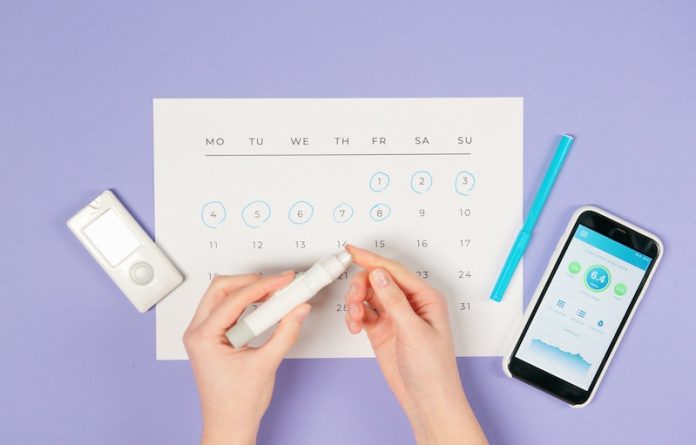
Diabetes is a chronic (long-lasting) health condition that affects how your body turns food into energy.
With type 2 diabetes, your body doesn’t use insulin well and can’t keep blood sugar at normal levels.
A recent study from the University of North Carolina found two medications that have proven to be most effective in keeping blood sugar within a target range while managing type 2 diabetes.
Out of four medications commonly used in conjunction with metformin, liraglutide and insulin were superior to glimepiride and sitagliptin in keeping A1C (a measurement of average blood glucose) levels less than 7%.
In the study, about 1,250 patients out of 5,000 with type 2 diabetes were assigned to each of the four medications in conjunction with ongoing metformin therapy.
The comparison included two oral medications, the sulfonylurea glimepiride and the DPP-4 inhibitor sitagliptin, and two injectable medications, insulin glargine and the GLP-1 receptor agonist liraglutide.
The team showed liraglutide and insulin were the most (and similarly) effective in keeping A1C levels less than 7%, glimepiride had a smaller effect, and sitagliptin showed the lowest effect.
Insulin glargine was most effective in keeping A1C levels less than 7.5%, a secondary outcome of the study.
The team says that once metformin is no longer keeping blood sugar levels in the target range, the results help decide which secondary medication may be most beneficial.
Injected liraglutide and once-daily “basal” insulin controlled A1C/average blood sugar for much longer than glimepiride or sitagliptin, with sitagliptin coming in last in the results.
The differences were particularly striking when the baseline A1C was higher. This suggests that for controlling blood sugars, especially if control is not good on metformin, the two injected agents will likely work better.
The team also found that on average, participants treated with liraglutide and sitagliptin had more weight loss than those treated with glimepiride, while the participants assigned to insulin glargine had stable weight over time.
In addition, liraglutide had more gut side effects, such as nausea, abdominal pain, and diarrhea, than the other three medications.
Glimepiride was associated with a higher risk for severely low blood glucose than the other medications, although this was rare.
Based on preliminary results, liraglutide had a relative benefit compared with the three other medications for the reduction of a composite outcome of heart attacks, stroke, and other heart and vascular complications.
The study was conducted by Sue Kirkman, et al.
If you care about blood sugar, please read studies that drinking high-protein milk at breakfast may lower blood sugar throughout the day, and a new way to reverse high blood sugar and muscle loss.
For more information about blood sugar health, please see recent studies that blackcurrants may help lower your blood sugar after a meal, and results showing checking blood sugar using sweat, not blood.
Copyright © 2023 Knowridge Science Report. All rights reserved.



